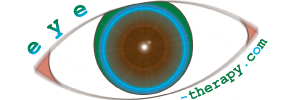
 |
Don't look back. You're not going that way. - Barbara Johnson |
Night Vision - Adaptation
Our eyes are able to adjust to an amazing range of light levels, from the brightness of the noon day sun to a candle flame a great distance away. When you first walk out into a dark night, you can't see very well, but half and hour later you can almost read a newspaper. This is called adaptation or night vision. Although the process of adapting to the dark of night can take up to half an hour to complete it can take only seconds to loose. Cock pits and the dashboards of cars are often illuminated with red lights because red colors do not ruin the adaptation the same way blue or green lights do. When doing the reverse, going from dark to bright light, it takes only about five minutes. The Rods of Your Eyes Responsible For Night VisionRods are more sensitive and are used for night vision, but there are relatively few in the fovea. Instead, the fovea has a high concentration of cones for sharp color vision. However, this means that at night, we may have difficulty seeing a dimly lit star even when we're looking right at it. For this reason, astronomers may advise you to look just to one side of a star, which will cause you to use your periferal vision, instead of looking directly at it. Why Do Cats See So Well In the Dark?Cats have a tapetum (tu'peetum), or a reflective coating, behind the light sensitive cells in their eyes which help them to see in the dark. Essentially, at night, the light that passes through the retina is reflected back through the retina a second time, giving them better night vision. There is a down side to this, though. The reflected light scatters, thereby loosing some degree of image clarity.
Adaptation Reaches Across Nine Orders Of Magnitude
*Photopic VisionVision of the eye at normal light levels. Vision is acute and color perception is accurate. **Mesopic VisionVision of the eye in low light levels. Visual acuity and color discrimination is inaccurate. ***Scotopic VisionVision of the eye in low light levels. It is monochromatic, that is, we do not see colors because cone cells, which process colors, do not function in low light levels.
*Lux is a unit for measuring the intensity of light equal to one lumen pre square meter. In research done by Holger Knau and Lothar Spillmann, it was determined that when staring at a sphere which was brightly colored, after a while, our eyes will adapt and the perceived color will change. The color will begin to look desaturated, eventually looking gray. Then the brightness will also fade. This takes between 2 to 7 minutes. This adaptation occurs faster for red, and slower for blue and violet. [Knau, Holger and Spillmann, Lothar, SPIE Proc., 2657, p. 19.] Read more about night vision.
|
|||||||||||||||||||||||||||||||||||||||||||||||||||||
Home
Facts and Fiction
Resolution
Color and Eyesight
Benhams Disk
Chromatic Adaptation
Chromostereopsis
Color Blindness
Color Discrimination
Color Sensitivity
Gender Differences
Metamerism
Trichromatic Theory
Eye Color
Peripheral Vision
Blind Spot
Night Vision
Aging Effects
Hold Time Timing
|
   |
||||||||||||||||||||||||||||||||||||||||||||||||||||
| Eye-Therapy.com |
DISCLAIMER: The information published here is for entertainment purposes only and is in no way intended to dispense medical opinion or advice or to be a substitute for professional medical care, be it advice, diagnosis or treatment, by a medical practitioner. If you feel ill or if you have a medical issue, you should consult a health care professional.
Site Map |
Terms of Use |
Privacy & Security |
Contact Us |
Purchase Agreement |
Send Feedback |